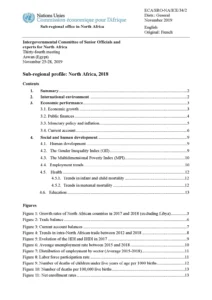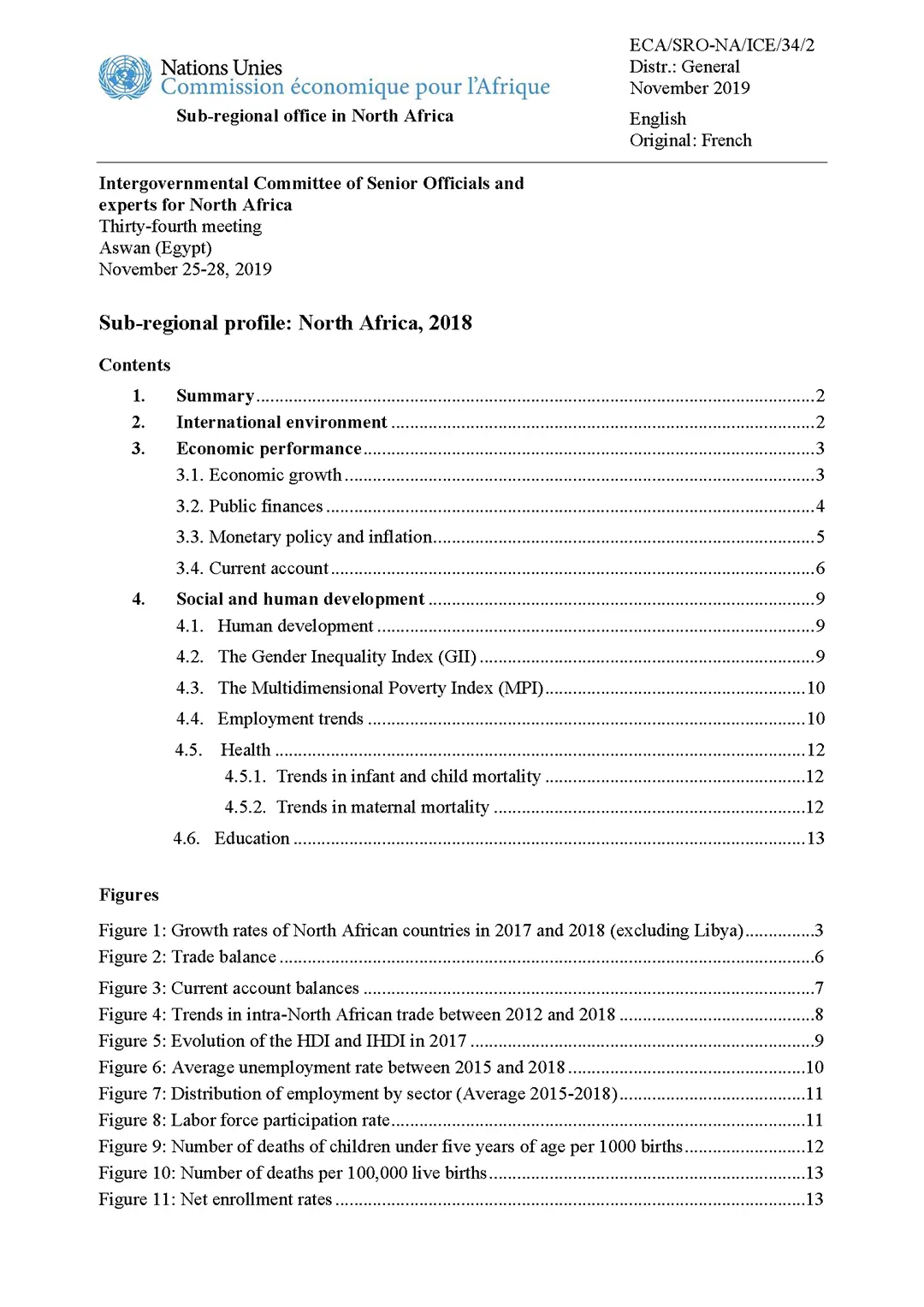1. North Africa's economy maintained a moderate growth rate of 3.15% in 2018, as against 3.19% in 2017, driven mainly by Egypt's growth (5.3%, against 4.2% a year earlier). Mauritania and Tunisia improved their growth to 3.6% and 2.5% respectively (compared to 3.1% and 1.9% in 2017), while Algeria experienced a stagnation in growth (1.5% compared to 1.4% in 2017). Morocco's growth declined from 4.3% in 2017 to 3% in 2018. Sudan went into recession with a rate of -2.3%. 2. The sub-region's public finances continue to be under pressure with a consolidated sub-regional budget deficit of -7.63% of GDP in 2018, due mainly to deficits in the economies of Egypt and Algeria. Although inflation is declining in most countries in the sub-region, it nevertheless continues to pose a significant challenge to their macroeconomic stability. It remains high in Egypt, Libya and Sudan due to the impact of major events in these countries in recent years. 3. The consolidated current account deficit fell by 31% in 2017 to USD 44.1 billion from USD 63.9 billion in 2016. The combined effects of increasing Libyan and Algerian hydrocarbon exports, the relative stability of other commodity prices and an improving regional security environment have helped improve the sub-region's external position. Only Sudan and Tunisia recorded a 14.2% and 10.4% increase in deficits respectively. 4. For 2019, the economic outlook is not favorable, with global growth not expected to exceed 2.6%, mainly due to heightened trade tensions in recent months. The ability of North African economies to respond to future shocks and finance growth-supporting investments will be hampered. Countries in the sub-region that are net exporters of hydrocarbons are likely to be impacted by the decline in prices that began in October 2018, while net oil-importing countries, including Tunisia and especially Morocco, continue to benefit from the downward trend in the price of oil per barrel. From a socio-political point of view, three countries (Algeria, Libya and Sudan) have had to contend with unrest that has had adverse consequences on growth and investment in these countries. Two countries experienced political change in 2019 through presidential elections


